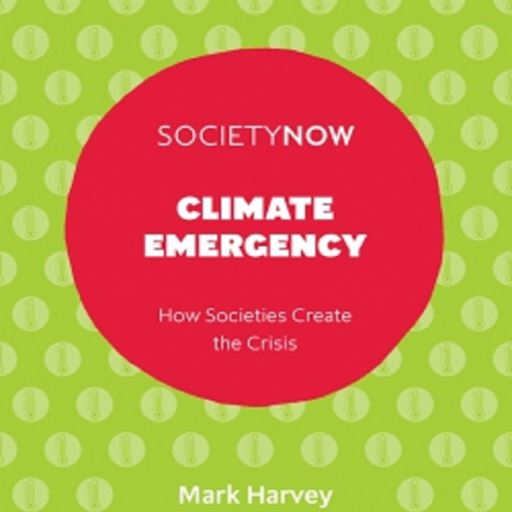New book looks at who has created the climate crisis and how to fix this global catastrophe
-
Date
Tue 14 Sep 21

Efforts to combat climate change are doomed to failure unless we have a better understanding of how different societies use the planet’s resources.
A wide-angle lens must be applied to the ultimate global crisis – climate change - demonstrating that a social scientific understanding of the historical development of societal economies is crucial to account for why different societies today are so unequal in their contributions to the climate emergency.
This is the view of Mark Harvey, Emeritus Professor from the Department of Sociology at the University of Essex, who analyses the socio-economic and political forces driving the climate emergency in a book just brought out by Emerald Publishing.
In Climate Emergency: How Societies Create the Crisis Professor Harvey re-examines the past through the lens of climate change, highlighting climate impact through history. The book is the culmination of years of research in the UK, Europe, the USA, China, India and Brazil.
In addressing the climate-emergency a social scientific approach complementing the natural science has become ever more urgent. Professor Harvey’s comparative and historical approach demonstrates the huge differences between societies in how they contributed to global warming in the past, thus conditioning the way they do so in the present.
He argues:
“It is not enough to understand the totality of greenhouse gases. The who, the how, the where and the when of the impact is key to explaining and then dealing with climate change. Societies vary enormously across the globe in how they fuel and feed climate change. The average American generates two and a half times more greenhouse gases than the average Chinese, and nine times more than the average Indian.
“Inequalities in wealth within and between nations are at the heart of their unequal contributions to the climate emergency. The richest within the richest countries are forcing the pace of climate change. Meanwhile, half the world’s poorer population produce less greenhouse gases than the level needed to meet the 1.5C global warming target.
“Unless the issues of inequality both in wealth and in command over environmental resources is politically addressed, COP26 is doomed to fail in the challenge to meet the climate emergency.”
Professor Harvey takes the reader through the British industrial revolution; US settler colonialism; slavery and Native American genocides; the electrification of societies and infrastructures for fossil-fuelled transportation; and changes in eating habits, comparing China, Europe and Brazil and their threat to the Amazon. And it is by reviewing these major historical movements through the lens of resource use, he is able to show how inequalities in wealth, both within and between countries, are directly related to who generates most greenhouse gases when. But these inequalities of wealth are combined with unequal national access to environmental resources, whether that be coal, oil, fertile land, water or sun.
According to Professor Harvey, different societies command different environmental resources, whether on their own national territories or through colonisation and trade. Not all capitalist societies are the same in the character of their wealth and environmental inequalities, and differ sharply from Chinese market socialism, Russia, or indeed the erstwhile Soviet Union.
There has never been a more pressing time to read and understand more about how we have arrived where we are, so that the national and international political processes can be developed to make the fundamental changes needed to avoid further acceleration towards catastrophic climate change. Professor Harvey’s book is a landmark contribution to this urgent debate.




